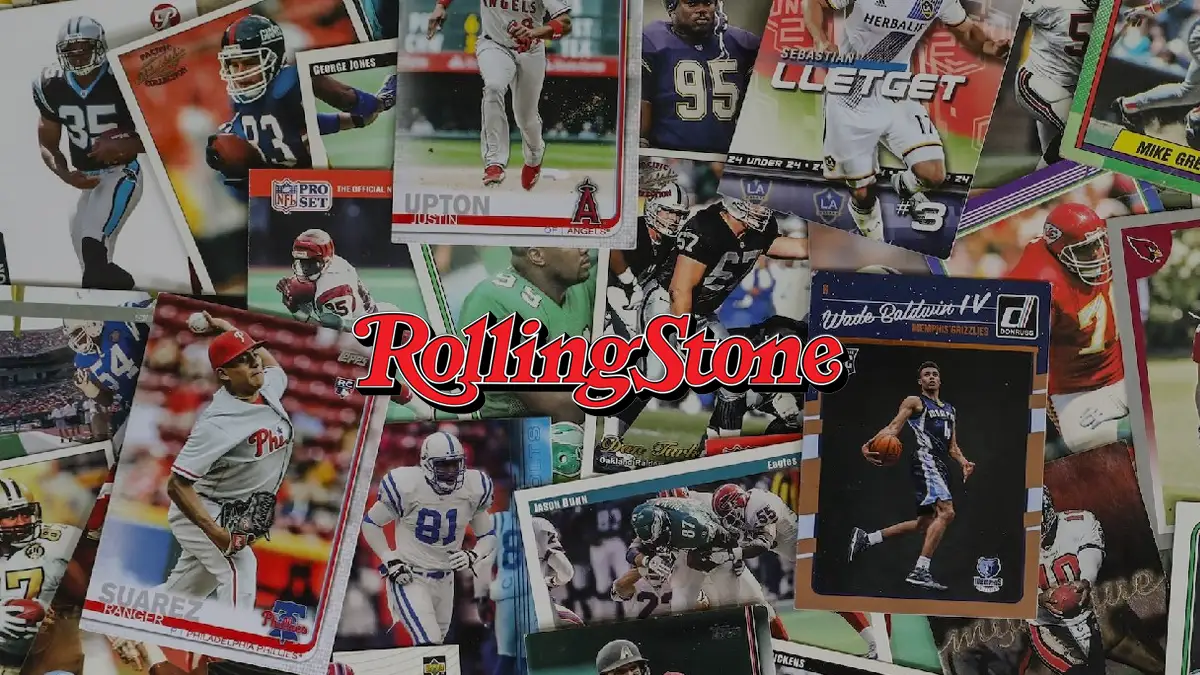Nostalgia is an economic powerhouse.
A 1952 ROOKIE card of baseball legend Mickey Mantle recently sold for $12.6 million. It’s the most anyone’s ever paid for a single piece of sports memorabilia, making it a rare gem. When you consider the scarcity of the card and its provenance, it’s likely to sell for even more in the future.
While the line between collector and investor is often blurred, people also collect because it brings them joy. A milestone like Mantle’s card sale may prompt collectors to explore their own collections to rediscover what they already have or inspire them to seek out more. It’s estimated by research firm Market Decipher that the sports memorabilia collectibles market will grow to $227 billion within the next decade.
Nostalgia is an economic powerhouse. I’ve had moments in life where I’ve wanted something, missed out, and then had the opportunity to get it again but at a much higher price. It’s something a lot of us go through. When faced with these moments, we have to choose whether we’re OK with letting something get away a second time or paying the premium to make that dream come true. But as socially conscious adults, that decision isn’t always as straightforward as we’d like it to be.
This isn’t just about baseball cards, it’s about the comfort in familiarity. The cyclical nature of fashion, lifestyle and entertainment trends, coupled with the fact that 30- and 40-somethings tend to have more disposable income than when they were younger, has made an ideal market for companies leaning on legacy brands. Maybe you had to beg a parent for a pair of Jordans, but now, you have another shot at greatness. Nike isn’t the only footwear brand making bank on retro enthusiasm. Reebok brought back the Pump, and L.A. Gear claims “The Future is Retro.”
Collectors are driven by scarcity: The thrill of obtaining something elusive is undeniable. We might have missed out the first time around, but we won’t let it happen again. For many, collecting is a second chance at love, and we are being seduced. Remember this thing you always wanted? You can have it. Now. We get excited about what we love, and we want to share this excitement with others. Communities on Facebook and Reddit have people connecting to share leads on deals and boast about their hauls.
Brands from the Eighties and Nineties are celebrating anniversaries. Every anniversary neatly divisible by five likely means more “collector’s edition” products. You’re probably not renting a movie from Blockbuster tonight, but you can purchase anything from T-shirts to puzzles to remind yourself that you used to.
The Impact of Covid on Collecting
The pandemic has been a catalyst when it comes to collector market interest. Restrictions early in the pandemic made it difficult for many to shop in-store. People staying home had more time to dive into hobbies. The supply chain strain is further fuel to the FOMO fire. As the world continues to open up, people will likely continue to carry this mindset for some time.
Lines of people standing outside of physical stores have evolved into online queues. It’s not uncommon for highly sought-after releases to be sold out within minutes. This is a powerful thing for advertisers to try to understand and leverage. But it’s harder to do when you’re not working with legacy brands.
As individuals, it’s possible to feel nostalgic not only for things from our childhoods but for eras that we never knew. New generations are discovering Metallica’s “Master of Puppets” and Kate Bush’s “Running Up That Hill” thanks to Stranger Things, and falling in love with them. For those who heard these songs as youngsters in the Eighties, it’s also about personal historical context. They may represent a period of time when our perception of the world was limited. Maybe we hated “Don’t Stop Believing” the first time we heard it, but now it reminds us of a time when the world didn’t seem so bad.
This yearning for a simpler time can be costly. While you can find gems from yesteryear in thrift stores, reissues and remixes are being sold at retail. You could find Journey’s Escape on vinyl for a dollar or two at a thrift store, or you could buy it at Walmart next time you need some mac and cheese.
Going Forward
We have a desire to be social, to belong to something special, but can this fuel the market for collectibles in the next decade?
A lot can happen in ten years. Organizations like the UN Intergovernmental Panel on Climate Change (IPCC) have stated we have to reduce our environmental impact drastically by 2030. The frequency of climate disasters continues to increase. Flooding, drought, wildfires and tropical storms threaten ecosystems around the world.
Consumers may want that second chance at love, but we only get one Earth. This isn’t about shifting the entire onus of curbing climate change to the individual, but we as business leaders can still be empowered to make better choices, which in turn can help our customers feel good about placing their trust in us.
Rather than produce goods that elicit nostalgic responses with the intent of one-time ownership, we can consider value retention, reuse and resale. Brands and retailers can sell previously-enjoyed items to their existing customers. This approach can also tie into loyalty programs incentivizing customers to trade in their items. Tech brands can allow their customers to repair or service gadgets. On the social media front, highlighting examples of customers using products in unexpected ways (such as Ikea Hacking) can help inspire others to do the same, either with items they already have or by picking up some additional pieces. In any of these cases, we can set examples for others to follow.
Some billionaires would like us to believe that we can colonize another world. But we’re already on one, and it’s the rarest gem.



